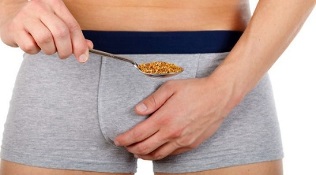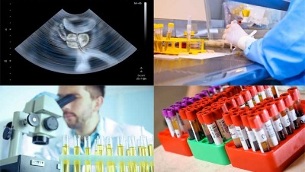
Prostatitis is one of the most common urological diseases in men.
According to WHO research, at least 30% of men between the ages of 20 and 50 suffer from this disease, and young people are affected by this insidious disease every year. Cases of inflammation of this organ have already been recorded in children aged 15 to 16 years.
The causes of chronic prostatitis
The disease itself is acute and chronic. Chronic prostatitis develops with untimely or ineffective treatment of acute prostatitis. Unfortunately, with the chronic form of prostatitis, a person cannot expect a full recovery.
Due to the development of the disease, a distinction is also made between congestive (congestive) and infectious prostatitis.
Congestive prostatitis occurs with circulatory disorders in the pelvic area and stagnation of the prostate secretions. Poor permeability and regular accumulation of blood in this area over time leads to the development of foci of inflammation. This deforms the prostate, which in turn has a negative effect on neighboring organs.
An enlarged organ can narrow the urinary tract, disrupt a person's urinary function, and also put pressure on the bladder, causing a frequent need to urinate. The development of prostate obstruction is most often influenced by a sedentary, sedentary lifestyle. Bad habits and obesity also increase the likelihood of illness.
The cause of infectious diseases is much more difficult to find out than that of congestion, since the disease can develop on the basis of many sexually transmitted and fungal diseases. Infection that enters a person through sexual contact spreads throughout the body, but the prostate is the first on the path where most pathogens accumulate. The proliferation of bacteria in this organ over time leads to its inflammation, and subsequently to the development of a kind of purulent foci (scars remain even after healing).
The infection doesn't stop on the prostate, some bacteria migrate through the urinary tract and get into the bladder and kidneys, leading to regular urination.
However, infectious prostatitis is not always a result of sexually transmitted diseases. There are thousands of bacteria and microorganisms in the human body that regularly come from the world around us. Immunity easily gets along with most of them, unless it is naturally weakened by the negative effects of smoking, alcohol, constant stress and neurosis. In such cases, the immune system is unable to fully regulate the development of bacteria or fungi, as a result of which their uncontrolled reproduction occurs and ultimately affects the prostate.
Symptoms of chronic prostatitis
The first signs of chronic prostatitis appear first in the regular urge to urinate and in discomfort in the perineum, similar to pain. This is especially noticeable when you lightly press on the lower abdomen or anus.
An uneven flow of urine is considered to be another symptom of chronic prostatitis. Spraying in different directions indicates a deformation of the muscle that should block the urinary canal (the muscle is at the base of the prostate).
The weakness of the beam is also a negative sign, which indicates more about the infectious nature of the development of the disease, in which several organs of the genitourinary system are affected at the same time. In some cases there are problems with erection, but more often they arise from a difficult mental state in a person.
Disease diagnostics
The diagnosis in the first stages of prostatitis is the same, whether it is normal or chronic, infectious or stagnant. Treatment is most often carried out by andrologists (in some cases, urologists).

After consultation and an internal examination, the doctor will write out a referral for tests:
- smear.The collection is made with a special probe that is inserted into the patient's urethra (the analysis allows you to find out which bacteria are in the patient's urinary tract and in what amount). You do not need to urinate for about 4 hours before the test.
- Analysis of prostate juice.The prostate has a porous structure and when there is inflammation, some parts of this organ are simply blocked. Although the inflammatory process is in full swing, regular tests show nothing. This is where the analysis of the secret (prostate juice) comes to the rescue. The doctor massages the prostate through the anus, pushing the secretion out of the inflamed areas and then collecting it from the urethra.
- urinalysis.Usually given after a smear test, it allows you to find out the pathology of the bladder and kidneys.
- Blood test- An analysis for infections is carried out.
- Ultrasound- examination of the prostate, bladder and kidneys.
Treatment of chronic prostatitis in men
After completing all analyzes, the andrologist continues with the treatment. Treatment for congestive prostatitis is easier. Usually it consists of taking antibiotics and immune-boosting drugs. The inflammation is removed with suppositories that must be inserted into the anus.
Everything is much more complicated with infectious prostatitis. For a more accurate diagnosis, some tests will need to be performed again. Treatment is prescribed based on the severity of the infection. Most often these are droppers and antibiotics. The second step will be immune correction and the elimination of toxins from the body. Together with drug treatment, prostate massage and physiotherapy (electrophoresis and magnetotherapy) are used.
The trick of infectious prostatitis lies in the fact that when it is supposedly completely cured, some of the pathogens still remain in the body and multiply over time, causing the prostate to become inflamed again. To prevent this from happening, it is recommended that the tests be repeated regularly and examined by a doctor.
Very often the patient complains of complaints in the perineal area and frequent urination, even after full recovery. This situation is not unusual. The fact is that even after removing the inflammatory process, scars remain on the organ, which interferes with its normal function. To get rid of this problem, there are a number of medicines (suppositories with enzymes) aimed at the resorption of scars.
Prevention of chronic prostatitis
Treatment of chronic prostatitis should maximize the prolongation of remission and the timely suppression of new inflammatory processes. To achieve long-term remission, and therefore avoid regular hospital visits, you need to radically change your lifestyle.
For starters, you shouldn't catch a cold under any circumstances. Anyone, even the smallest drop in temperature, can lead to deterioration. It is enough to take the bus on a cold seat or sit in the draft. If possible, avoid sedentary work or warm up for five minutes at least once an hour. Say goodbye to all bad habits completely:Smoking and alcohol are strictly prohibited!
In addition, it is important to follow a special diet for chronic prostatitis. It is not recommended to eat smoked products, overly fatty foods, highly carbonated drinks, and some kinds of seasonings (hot spices).

Include the following in your diet:
- chicken;
- fish;
- fermented milk products (cottage cheese, kefir, sour cream with a low percentage of fat);
- vegetables;
- fruits;
- honey.
The use of pumpkin seeds has a very positive effect on the prostate.
If you have been diagnosed with chronic prostatitis, you will not get depressed! Yes, the disease is quite complex, but if you follow all the recommendations of the doctor and lead a healthy lifestyle, then pain and constant discomfort will not bother you for a long time. Careful care of your health and regular examinations by an andrologist will enable you to live a full, colorful life!
























